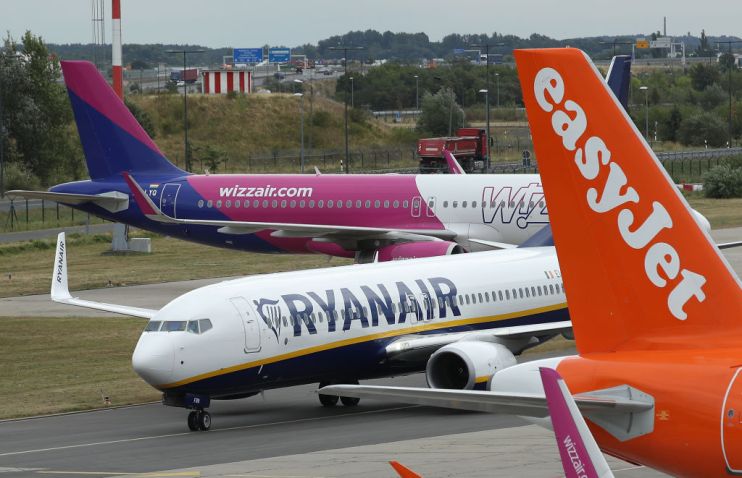Ryanair and Wizz Air the worst offenders as airlines face ‘drip selling’ allegations

European airlines have come under fire for ‘drip-selling’ after a report revealed 97 per cent of carriers on the continent are charging at least one “hidden fee” for their services amid already-rising air fares.
Drip selling refers to companies hiding the true cost of products and services, by proclaiming one price initially but then charging extra fees. The tactic is used to sell productst ranging from air fares to gym memberships.
Research from money-saving voucher site Netvouchercodes, a money saving voucher site – found that add-on fees for things like seat selection and onboard wifi have become far more common, with the share of airlines advertising them standing at 90 per cent globally.
Ryanair was revealed as Europe’s worst offender, charging additional fees that worked out at a whopping 344 per cent of its average £18.39 flight cost.
Other low cost favourites fared little better, with Wizz Air coming a close second and charging an average £93.56 in hidden costs, 273 per cent of the price of its average flight. Easyjet finished third with average add-ons totalling £62.84, 170 per cent of the standard flight fee.
In June Prime Minister Rishi Sunak launched an investigation into how widespread and damaging ‘drip selling’ costs are for consumers.
Responding to the report, consumer group Which’s travel editor, Rory Boland, said Ryanair had become “adept at boosting its coffers through an array of extra charges, which can be added on for anything from taking a decent-sized bag to sitting with your family.”
He argued that the the government should go further than its current review and “explicitly ban drip pricing in its Digital Markets, Competition and Consumers Bill to prevent consumers being misled and to ensure a fair and competitive market”.
Today’s findings come just a week after Ryanair was embroiled in controversy for charging an elderly couple who checked into the wrong flight £110 for new boarding passes.
In a statement to City A.M. Ryanair described the report as “factually inaccurate” and objected to the term “hidden fees”, arguing that “all products referred to are optional which the consumer can choose to add or not to add”.
“If they opt for none of these additional products they can still travel with a carry-on bag at the lowest fares in Europe which is fantastic value for consumers.”
Wizz Air, meanwhile, has fallen under heavy scrutiny from the UK’s aviation watchdog this year for falsely rejecting passengers’ compensation claims.
Responding to City A.M. Wizz argued that prices and costs for “optional extras are clearly outlined on our website and app”.
“We are an ultra-low-cost carrier and to keep our fares low, we offer optional add-ons at an additional charge, such as checked luggage or preferential seating.”
The spokesperson added: “Optional add-ons are not required in order to fly, and we believe that customers should be offered the choice and flexibility to choose the right products for them.”
Easyjet claim the report shows the “fantastic value low fares” that the airline provides to customers each year and said that the carrier has no hidden charges.
Alongside add-on fees, airfares have soared this year as extraordinary demand for travel post Covid and the cost of decarbonisation leads to steep rises on many routes.
According to the Office for National Statistics, ticket prices rose by 44.1 per cent in the year to December 2022, the biggest rise in prices in over 30 years.